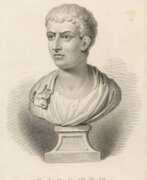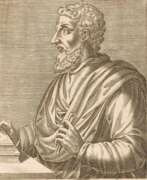Historians 1st century BC


Sallust, or Gaius Sallustius Crispus, was an ancient Roman historian, a reformer of ancient historiography, who had a significant influence on Tacitus and other historians.
Sallust was one of the first Roman historians to introduce into historical works extended speeches of the main characters to better emphasise the peculiarities of their character and political orientation. He was also one of the first to cast a critical eye on the recent history of Rome. Minor passages of his main work, the Histories, have survived. More famous are two small historical monographs - "On the Conspiracy of Catiline" and "The Jugurthine War". The theoretical basis of the works of Sallust was the doctrine of moral decline, according to which the cause of the crisis of the Roman Republic was the departure from traditional virtues to the domination of ambition and greed.


Marcus Terentius Varrō, sometimes called Varro of Reatinus, was an ancient Roman scholar-encyclopedist and writer.
Varro was a very prolific writer: the titles of his 74 works are known, totaling 620 books. Varron was engaged in logic, language, poetry, history, law and geography, history, art, history of literature, theory of music. Judging by the surviving accounts of his contemporaries, the most significant of Varron's lost works were "Divine and Human Antiquities" (Antiquitates rerum humanarum et divinarum) in 41 books and "Portraits" (Imagines) in 15 books, which contained biographies of famous Greeks and Romans, as well as 700 portraits that illustrated the text. The treatise "On Agriculture" (De re rustica) in three books has survived in complete preservation.